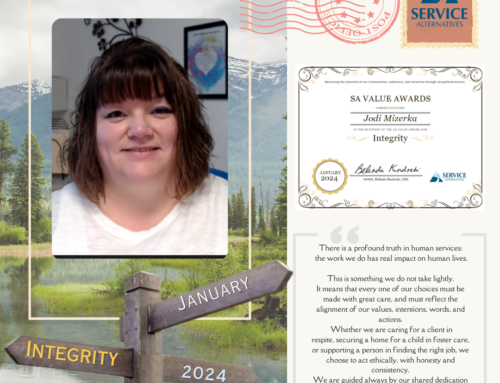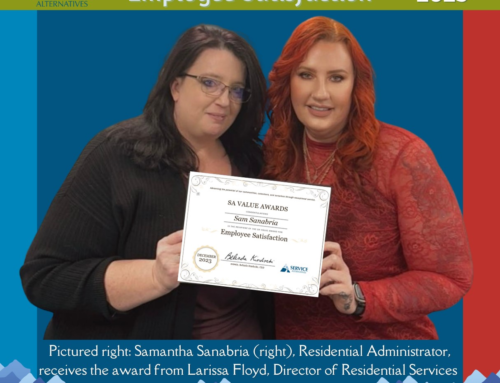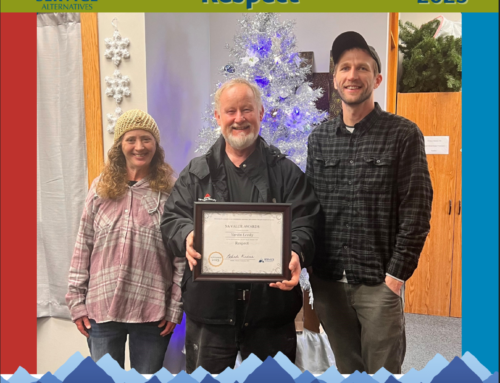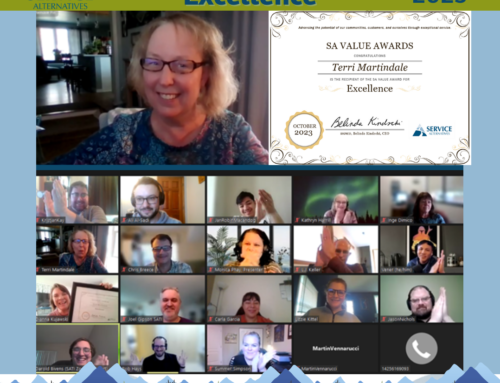In a world that’s becoming faster paced by the minute, work-life balance is a hot topic. In particular, there’s a lot of discussion around boundaries: recognizing we need them, developing the competency to assert them (usually by saying “no”), and vigilantly maintaining them so that we’re not overextending and neglecting what is important to us.
Most of us see boundaries as a structure that defend our precious resources—our time, energy, loved ones, etc.—against invaders.
What if there was another way of setting boundaries then setting a defense?
One client of mine, a dynamic and compassionate executive who is deeply rooted in service and vocation, described to me what it felt like for her to be centered and powerful. She felt it as a spinning column of energy running vertically through the middle of her body. When she sat with it, she could feel the truth of what she was up to, where she was needed, and what she was capable of accomplishing. It was receptive as well as generative: “catching” and handling things, but also “producing” the energy necessary to meet whatever was coming in.
This person has a healthy work-life balance and great boundaries—but those boundaries are a very different shape than the defensive ones described above.
As we deepen in our development, becoming more and more in touch with what is worth our time and energy, there is a different orientation to work-life balance and boundaries. It becomes an empowered, directed movement, informed by what we know to be true about ourselves. We’re no longer hunkered and powerless against whatever the world is throwing at us. There is choice. There is wisdom.
How to get from here to there
The key to changing shape in this way is drawing our focus more and more to our own alignment. What is mine to do? What is the world asking of me? What is truly important to me? What is my life for?
Taking 5 deep breaths andphysically attuning to the questions above, our attention shifts more toward our values, our vocation, or calling, and less on what is being demanded of us from the outside.
Naturally, it’s not as simple as this—insight and breath only get us so far. We can’t just decide to shift focus and expect our relationship with boundaries to change. We must re-shape our bodies and nervous systems through practice.
Some practical suggestions:
At Work
- Set manageable goals each day. Being able to meet priorities helps us feel a sense of accomplishment and control. The latest research shows that the more control we have over our work, the less stressed we get. So be realistic about workloads and deadlines. Make a “to do” list and take care of important tasks first and eliminate nonessential ones. Ask for help when necessary.
- Be efficient with your time at work.When we procrastinate, the task often grows in our minds until it seems insurmountable. When you face a big project at work or home, start by dividing it into smaller tasks. Complete the first one before moving on to the next. Give yourself small rewards upon each completion, whether it’s a five-minute break or a walk to the coffee shop. If you feel overwhelmed by routines that seem unnecessary, tell your boss. The less time you spend doing busy work or procrastinating, the more time you can spend productively.
- Take five. Taking a break at work isn’t only acceptable, it’s often encouraged by employers. Small breaks at work—or on any project—will help clear your head, and improve your ability to deal with stress and make good decisions when you jump back into the grind.
- Tune in. Listen to your favorite music at work to foster concentration, reduce stress and anxiety, and stimulate creativity. Studies dating back more than 30 years show the benefits of music in everyday life, including lowered blood pressure. Be sure to wear headphones on the job, and then pump up the volume—and your productivity.
- Communicate effectively. Be honest with colleagues and your boss when you feel you’re in a bind. Chances are, you’re not alone. But don’t just complain—suggest practical alternatives. Looking at a situation from someone else’s viewpoint can also reduce your stress.
- Give yourself a break. No one’s perfect! Allow yourself to be human and just do the best you can.
At Home
- Unplug. The same technology that makes it so easy for workers to do their jobs can also burn us out if we use it 24/7. By all means, make yourself available—especially if you’ve earned the right to “flex” your hours—but recognize the need for personal time, too.
- Divide and conquer. Make sure responsibilities at home are evenly distributed and clearly outlined—you’ll avoid confusion and problems later.
- Don’t over commi Do you feel stressed when you just glance at your calendar? If you’re overscheduled with activities, learn to say,” no.” Shed the superman/superwoman urge!
- Get support. Chatting with friends and family can be important to your success at home—or at work—and can even improve your health. People with stronger support systems have more aggressive immune responses to illnesses than those who lack such support.
- Take advantage of your company’s Employee Assistance Program (EAP). Many organizations offer resources through an EAP, which can save you precious time by providing guidance on issues like where to find a daycare center or caretaking for an elderly parent, as well as referrals to mental health and other services.
- Stay active. Aside from its well-known physical benefits, regular exercise reduces stress, depression and anxiety, and enables people to better cope with adversity, according to researchers. It’ll also boost your immune system and keep you out of the doctor’s office. Make time in your schedule for the gym or to take a walk during lunch—and have some fun!
- Treat your body right. Being in good shape physically increases your tolerance to stress and reduces sick days. Eat right, exercise and get adequate rest. Don’t rely on drugs, alcohol, or cigarettes to cope with stress; they’ll only lead to more problems.
- Get help if you need it. Don’t let stress stand in the way of your health and happiness. If you are persistently overwhelmed, it may be time to seek help from a mental health professional. Asking for help is not a sign of weakness—taking care of yourself is a sign of strength.
Join the conversation on our Facebook page!










